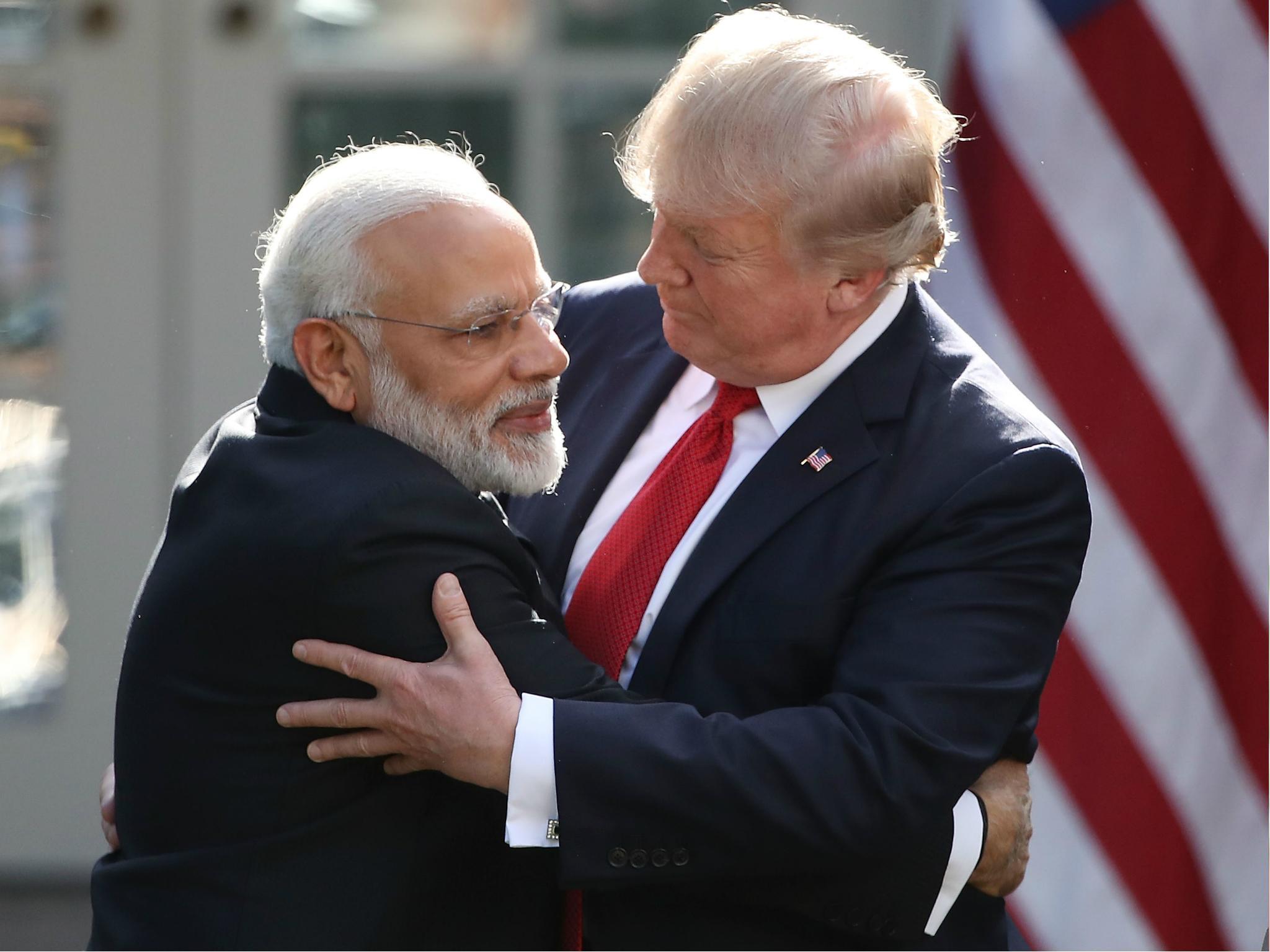Indian Prime Minister Modi's visit to Israel puts him firmly on the side of Trump and his international strongmen
Thirty years ago the world was broadly split between liberal democracies and communist countries. Now the world is increasingly divided between liberal democracies and authoritarian strongmen


Your support helps us to tell the story
From reproductive rights to climate change to Big Tech, The Independent is on the ground when the story is developing. Whether it's investigating the financials of Elon Musk's pro-Trump PAC or producing our latest documentary, 'The A Word', which shines a light on the American women fighting for reproductive rights, we know how important it is to parse out the facts from the messaging.
At such a critical moment in US history, we need reporters on the ground. Your donation allows us to keep sending journalists to speak to both sides of the story.
The Independent is trusted by Americans across the entire political spectrum. And unlike many other quality news outlets, we choose not to lock Americans out of our reporting and analysis with paywalls. We believe quality journalism should be available to everyone, paid for by those who can afford it.
Your support makes all the difference.For the first time in Indian history today, a sitting Prime Minister will enthusiastically meet the leader of Israel. And unusually Benjamin Netanyahu will accompany Narendra Modi for most of his 48 hours in the country. “It is a historic visit and we ascribe a lot of importance to it,” an official told the Ha’aretz newspaper.
This is more than a historic visit. Prime ministers from India always took a balanced and sensitive approach to the Israeli-Palestinian conflict in the past. Not Modi. He won’t even bother meeting with Palestinians during his visit.
What we are watching, in slow motion, is the biggest realignment of the global order since the Second World War.
Before Netanyahu, Modi was in the United States giving Donald Trump a hug. The Indian PM wasn’t reticent or embarrassed in meeting Trump, unlike other world leaders, he relished it. And when Modi went to meet Putin last month, he called him a “natural ally”.
We need to zoom out and take a look at the bigger picture. Western Europe has already become hostile to Donald Trump. The view from Germany was widely echoed by the editor of Der Spiegel when he wrote: “The United States President is becoming a danger to the world.” In fact resisting Trump is essential to Europe’s survival. Confidence in Trump’s ability to lead the world is at historically low levels across the continent.
This is an unprecedented shakeup of global affairs. The transatlantic alliance between Western Europe and the US has been the lynchpin of world politics since 1945. And yet it is crumbling before our very eyes.
Thirty years ago the world was broadly split between liberal democracies and communist countries. Now the world is increasingly divided between liberal democracies and authoritarian strongmen.
Europe largely sees Trump as an isolated figure, vociferously criticised for his authoritarian tendencies. He hates the free press and democratic norms, he does or says little about escalating violence against minorities at home. He talks about jobs but has little to show for it.
These criticisms of Trump also apply to Narendra Modi too. They also apply to Netanyahu. The same traits are embodied by Putin in Russia, Erdogan in Turkey, Duerte in the Philippines, Sisi in Egypt and the royal family in Saudi Arabia. There are minor differences of course but what binds them together is greater than what separates them. Imagine a G7 not with Merkel, Macron or Trudeau, but with Putin, Netanyahu, Modi and Trump backslapping each other.
The Prime Ministers of India and Israel are getting together for more than just arms trading (2017 will likely be a “record year” for arms sales) – they also share an ideological worldview. As one Indian writer put it, Indian nationalists “not only envisage India following Israel’s apartheid model to deal with the minorities at home, but also always dream of turning India into an aggressive state like Israel”.
What’s unclear in all this is Britain’s role. Already suffering from a Foreign Secretary widely seen as an incompetent buffoon, the Prime Minister is trying to follow the mantra of having her cake and eating it too.
May wants to distance herself from Britain’s closest ideological and trade allies, the EU, and instead embrace Trump and Modi. Abandoning the club of liberal democracies to ally with authoritarians is perhaps the most foolhardy approach to foreign affairs that Britain can take. And May is taking it.
Of course there are caveats here. Turkey doesn’t see eye-to-eye on everything with Putin or Sisi. And China is more interested in trade with Europe than cosying up to Modi. But don’t underestimate the ideological similarities between the world’s authoritarian strongmen, or their willingness to strike deals. After all, Erdogan and Putin patched up their difference very quickly last year.
Most of all, do not underestimate their desire to hang on to power and bend the world to their will.
Join our commenting forum
Join thought-provoking conversations, follow other Independent readers and see their replies
Comments